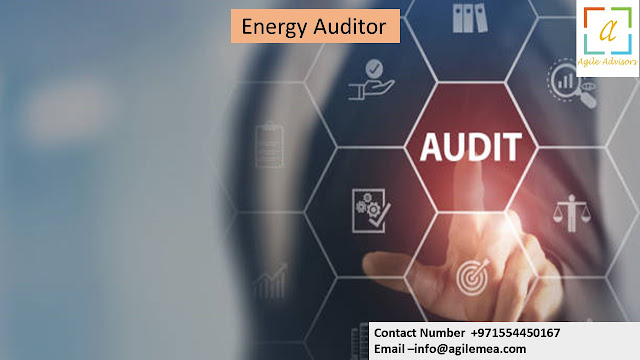Types of Energy Audits
In our role as Energy Auditor, an energy
audit is a procedure that involves identifying every energy flow within the
system and quantifying energy use based on a discrete function. It seeks to
achieve an energy balance between input and output. Energy audits assist with
pollution control, cost optimization, and other safety-related issues, as well
as helping to improve the system's operating and maintenance procedures. An
organization can protect itself from changes in the availability of energy
costs by conducting an energy audit. Additionally, it facilitates the selection
of a suitable energy mix, ensures energy supply reliability, and promotes the
use of more advanced technology and equipment for energy conservation. In the
initial phase, it is just a data collection. Only the available data and a few
diagnostic tools are used for the audit.
As one of the leading Energy Audit, using a technical report, the detailed audit proposes an action plan for lowering energy usage by verifying, tracking, and analyzing energy use. It thus transcends quantitative approximations. Following the preliminary energy audit is the total energy audit. Energy efficiency is calculated here using complex equipment like a scanner, flue gas analyzer, and flow meter. A home energy audit may guarantee consistent temperatures and reduce hot or cold patches in a property by finding and fixing problems such as drafts, inadequate insulation, and an inefficient HVAC system. Ultimately, a home energy audit equips homeowners with the information they need to reduce their environmental impact, increase energy efficiency, and save utility expenditures.
To help you as Energy Consultant, homeowners
can identify areas for improvement and use energy-saving measures by doing a
thorough audit. Among the advantages are actual cost savings and contributing
to a greener future. To start saving energy, schedule a home energy audit right
away. Our skilled team of experts will perform a comprehensive assessment of
your private home, locating areas of energy waste and providing tailored
solutions to increase efficiency. By setting up your audit, you'll get a clear
understanding of your home's energy efficiency and a roadmap for making
changes. Seize the opportunity to reduce your energy expenses and environmental
impact. Click this link to arrange for your home energy audit and start down
the path to a more energy-efficient home.
We as an Energy Auditor, is advised to
determine how much energy a facility uses and what potential savings are
associated with that energy use. An energy audit, also known as a review,
examines every aspect of an organization's past and present energy use to
locate and measure areas where the organization's operations waste energy. The
most influential person to do it is an Accredited Energy Master Auditor. Provide
a thorough review of energy performance to measure the entire spectrum of
opportunities for a site. To offer quantitative energy savings recommendations,
Type 2 outlines rigorous auditing that includes a comprehensive study and
analysis of the building's systems, equipment, and operational characteristics.
Being an Energy Consultant, also known
as a review, examines every aspect of an organization's past and present energy
use to locate and measure areas where the organization's operations waste
energy. The most influential person to do it is an Accredited Energy Master
Auditor. Provide a thorough review of energy performance to measure the entire
spectrum of opportunities for a site. To offer quantitative energy savings
recommendations, Type 2 outlines rigorous auditing that includes a
comprehensive study and analysis of the building's systems, equipment, and
operational characteristics. The recommended actions to improve energy
performance include a financial analysis based on projections with adequate
accuracy for operating expenses or medium-sized capital investments.




Comments
Post a Comment